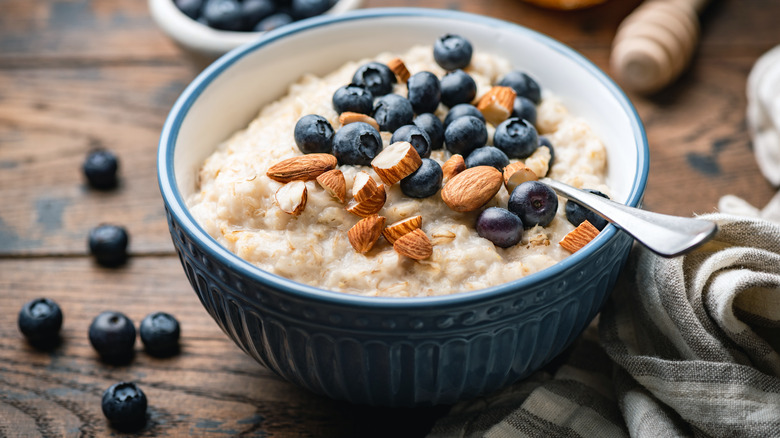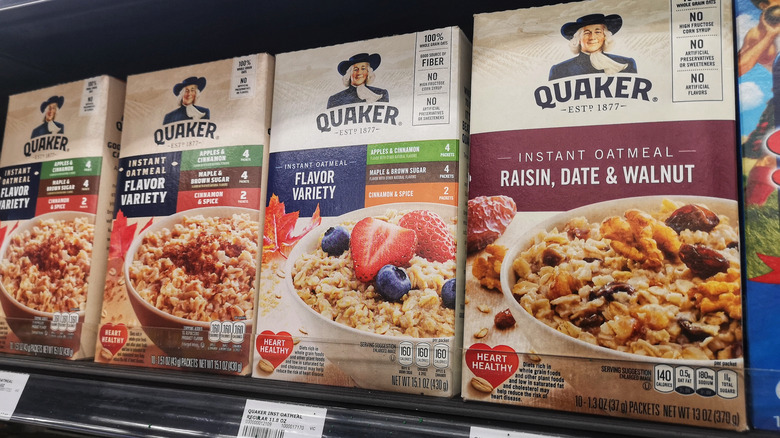Why You Should Avoid Instant Oatmeal Packs
Rich in complex carbs, oatmeal is one of the healthiest foods you can enjoy for breakfast or before hitting the gym. It goes well with almond or coconut milk, fresh orange juice, fruits, dark chocolate, almonds, and everything in between. On top of that, its nutritional value is hard to beat. A cup of cooked oatmeal has around 166 calories, 6 grams of protein, 3.6 grams of fat, and 28 grams of carbs, including 4 grams of fiber (per MyFoodData). What's more, it provides large amounts of iron, zinc, potassium, magnesium, selenium, manganese, and B vitamins.
Beta-glucan, a type of soluble fiber in oats, has beneficial effects on blood lipids and may protect against heart disease, notes the Mayo Clinic. This nutrient also keeps your blood sugar levels within normal limits, leading to a lower risk of diabetes. At the same time, it supports digestive health and promotes regularity. The protein and fiber in oatmeal slow down sugar absorption into the bloodstream and suppress appetite, making it easier to maintain your weight. Oats also contain polyphenols, avenanthramides, and other antioxidants that fight inflammation, according to 2015 research published in the Journal of Food Science and Technology.
This delicious breakfast staple takes a few minutes to cook, depending on the type of oats. Instant oatmeal can be a great choice when you're short on time, but it's not as healthy as the real thing.
Instant oatmeal isn't as healthy as you might think
Quick and convenient, instant oatmeal packs allow you to prepare a balanced breakfast on those busy mornings. The grains are cut into small pieces and undergo more extensive processing than steel-cut or rolled oats, which reduces their cooking time. However, they're similar to regular oats from a nutritional standpoint. For example, Quaker Organic Instant Oatmeal has pretty much the same amount of protein, carbs, fats, fiber, and calories as cooked oatmeal, according to MyFoodData.
The problem is that instant oatmeal often contains sugar, synthetic flavors, and other extras, warns Harvard T.H. Chan School of Public Health. Moreover, it has a higher glycemic index (GI) value than regular oats, so it increases your blood glucose levels more quickly. These numbers vary from one brand to the next, but generally, instant oats have a GI of 75, which is higher compared to steel-cut oats (55), large-flake oats (53), and muesli (56), per a 2016 review featured in the Journal of Clinical and Preventive Cardiology.
All in all, instant oatmeal with no added sugar can be a good choice for breakfast, lunch, or whenever you need a boost of energy. Ideally, you can serve it with almonds, pistachios, milk, and other foods rich in protein or healthy fats, as these nutrients can slow carbohydrate digestion and prevent blood sugar spikes, according to Open Cities Health Center. Alternatively, you can add a scoop of protein powder for extra flavor and nutrition.


